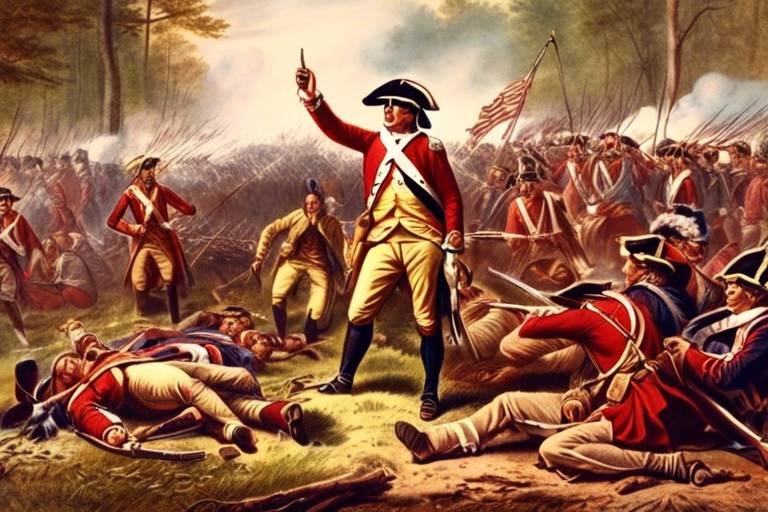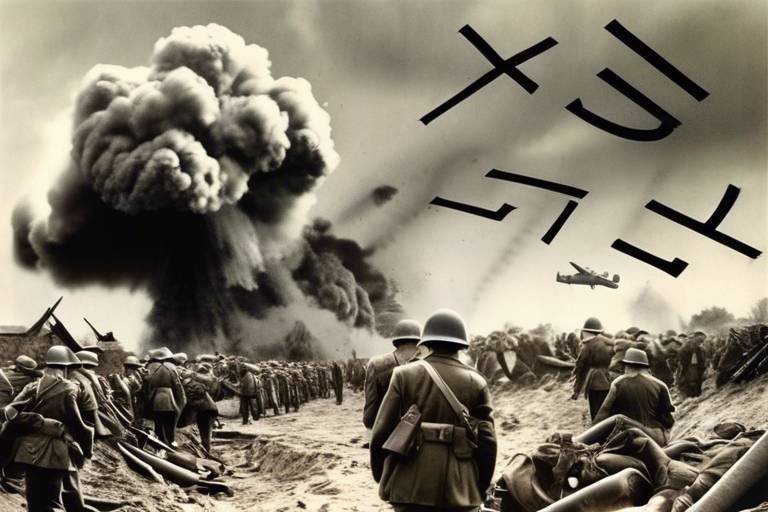The Historical Significance of the French Revolution
The French Revolution stands as a monumental chapter in history, a seismic event that reverberated through the annals of time, forever altering the landscape of society, politics, and culture. Its significance transcends borders, shaping not only the course of France but also leaving an indelible mark on the global stage.
At its core, the French Revolution was a response to a myriad of interconnected factors that had long simmered beneath the surface. The cauldron of discontent brewed by economic disparities, social injustices, and political inequities finally reached a boiling point, igniting the flames of revolution. The ideals of the Enlightenment, with their emphasis on liberty, equality, and fraternity, served as the intellectual kindling that fueled the revolutionary fire. Moreover, the dire financial crisis plaguing the French monarchy served as the spark that set off the powder keg of discontent.
Central to the narrative of the French Revolution are the towering figures who shaped its trajectory. From the radical fervor of Robespierre to the fiery journalism of Marat and the military genius of Napoleon Bonaparte, these individuals left an indelible mark on the revolution and the subsequent course of history. Their actions, ideologies, and ambitions intertwined to mold the new political systems that emerged from the crucible of revolution.
The Reign of Terror stands as a dark chapter in the revolution's saga, a period marked by violent excesses and brutal repression. Led by the Committee of Public Safety, the Reign of Terror saw the rise of the guillotine as the instrument of revolutionary justice, with mass executions and the stifling of dissent casting a shadow over the revolutionary ideals of liberty and equality.
Napoleon Bonaparte's meteoric rise from a humble military general to the Emperor of France epitomizes the revolutionary tumult that swept through the nation. His military prowess, sweeping reforms, and ambitious conquests reshaped the map of Europe and left an indelible mark on the continent's political landscape. The legacy of his rule continues to echo through the corridors of history, influencing the course of nations and empires.
As we reflect on the legacy of the French Revolution, its impact on modern democracy, human rights, and nationalist movements becomes apparent. The ideals of liberty, equality, and fraternity espoused during the revolution continue to resonate in the struggle for social justice and political reform worldwide. The revolution's ripple effects reached far beyond the borders of France, inspiring uprisings and reforms across Europe and challenging the entrenched power structures of monarchies.
The cultural and artistic revolution unleashed by the French Revolution ushered in a new era of creativity and expression. Art, literature, and culture flourished in the revolutionary fervor, giving birth to new artistic movements that reflected the radical changes sweeping through society. The echoes of this cultural renaissance continue to reverberate in the artistic landscape of today.
As we grapple with the lessons learned from the French Revolution, we confront the enduring truths it has laid bare. The consequences of social inequality, the power of collective action, and the fragility of political systems serve as stark reminders of the revolutionary fervor that once gripped France. The revolution's cautionary tale reminds us of the need for vigilance in safeguarding the principles of liberty and equality that lie at the heart of democracy.

Causes of the French Revolution
When delving into the , it becomes evident that a myriad of factors contributed to the eruption of this monumental event in history. One of the primary catalysts was the prevailing economic inequality that plagued French society at the time. The stark contrast between the lavish lifestyles of the nobility and clergy and the dire poverty experienced by the common people created a breeding ground for discontent and resentment.
Furthermore, the social disparities entrenched in the feudal system exacerbated tensions among the populace. The rigid social hierarchy, where the aristocracy enjoyed privileges and exemptions while the lower classes bore the burden of heavy taxation and limited opportunities, fueled a sense of injustice and disenchantment.
On a political front, the absolute monarchy under Louis XVI faced mounting criticism for its autocratic rule and failure to address the grievances of the populace. The lack of representation for the common people in decision-making processes and the monarchy's resistance to reform further exacerbated the growing unrest.
The Enlightenment ideals of liberty, equality, and fraternity also played a pivotal role in shaping the revolutionary fervor. The dissemination of progressive ideas through literature, salons, and pamphlets sparked a desire for political change and inspired individuals to challenge the existing order.
Moreover, the financial crisis that plagued France, exacerbated by costly wars and extravagant spending at the court, pushed the country to the brink of bankruptcy. The burden of repaying debts fell disproportionately on the lower classes, leading to widespread discontent and a sense of economic hardship.
In summary, the convergence of economic, social, political, and intellectual factors created a volatile environment that ultimately culminated in the eruption of the French Revolution, reshaping the course of history and laying the groundwork for profound societal transformation.

Key Figures of the Revolution
During the tumultuous period of the French Revolution, several key figures emerged who left a lasting impact on the course of history. Among these influential individuals were Maximilien Robespierre, Jean-Paul Marat, and Napoleon Bonaparte. Each of these figures played a crucial role in shaping the revolution and the subsequent political landscape of France.
Maximilien Robespierre, a prominent leader of the radical Jacobin faction, became a central figure in the Reign of Terror. Known for his unwavering commitment to the ideals of the revolution, Robespierre oversaw the Committee of Public Safety and implemented drastic measures to protect the revolution from internal and external threats.
Jean-Paul Marat, a passionate journalist and advocate for the rights of the common people, used his newspaper, "L'Ami du peuple" (The Friend of the People), to incite popular support for revolutionary ideals. Marat's radical views and fervent advocacy for violence as a means of achieving social change made him a polarizing figure during the revolution.
Napoleon Bonaparte, a skilled military strategist and ambitious leader, rose to prominence during the chaos of the revolution. Through his military victories and political maneuvering, Napoleon eventually seized power and declared himself Emperor of France. His reign marked a significant shift in the political landscape of Europe and laid the foundation for the Napoleonic Wars.
These key figures of the French Revolution exemplified the complex and often contradictory nature of the revolutionary era. Their actions and ideologies continue to be studied and debated by historians, reflecting the enduring impact of their contributions to the course of history.

Reign of Terror
Exploring the pivotal events and lasting impact of the French Revolution on society, politics, and culture, shaping the course of history in France and beyond.
Investigating the economic, social, and political factors that led to the outbreak of the French Revolution, including inequality, Enlightenment ideas, and financial crisis.
Highlighting influential figures such as Robespierre, Marat, and Napoleon, who played crucial roles in the revolution's progression and the establishment of new political systems.
During the Reign of Terror, the Committee of Public Safety, led by Robespierre, unleashed a wave of violence and repression in France. The period was marked by mass executions of perceived enemies of the revolution, with the guillotine becoming a symbol of terror. The Committee sought to eliminate any opposition to the revolutionary government, leading to a climate of fear and suspicion among the populace.
Tracing Napoleon's journey from a skilled military general to the Emperor of France, his rise to power reshaped the political landscape of Europe. Through his military conquests, administrative reforms, and establishment of the Napoleonic Code, Napoleon left a lasting impact on France and the continent as a whole.
Analyzing the enduring legacy of the French Revolution on modern democracy, human rights, nationalism, and revolutionary movements worldwide.
The French Revolution inspired uprisings and reforms across Europe, challenging the absolute power of monarchies and paving the way for constitutional governments. The ideals of liberty, equality, and fraternity spread throughout the continent, fueling movements for political change and reform.
The cultural and artistic revolution sparked by the French Revolution brought about a wave of creativity and innovation in art, literature, and music. Artists and writers embraced new themes of liberty and individualism, leading to the emergence of Romanticism and other artistic movements that reflected the spirit of the times.
Evaluating the lessons and warnings provided by the French Revolution, including the consequences of social inequality, the power of collective action, and the fragility of political systems.

Napoleon Bonaparte's Rise to Power
Napoleon Bonaparte's rise to power marked a significant turning point in the aftermath of the French Revolution. Born in Corsica in 1769, Napoleon quickly rose through the ranks of the French military during the revolutionary period. His military prowess and strategic acumen propelled him to prominence, leading to his appointment as First Consul in 1799 following a coup d'état that overthrew the Directory.
As First Consul, Napoleon embarked on a series of ambitious reforms aimed at consolidating his power and modernizing France. In 1804, he crowned himself Emperor of the French, symbolizing a shift towards a more authoritarian regime. Napoleon's rule was characterized by centralization of power, a strict legal code (the Napoleonic Code), and extensive military campaigns across Europe.
One of Napoleon's most notable achievements was the establishment of the French Empire, which expanded French influence and control over vast territories. His military conquests, such as the Battle of Austerlitz in 1805, solidified his reputation as a brilliant military strategist and further enhanced his power and prestige.
However, Napoleon's quest for dominance ultimately led to his downfall. The disastrous invasion of Russia in 1812 and the defeat at the Battle of Waterloo in 1815 marked the end of his reign and the restoration of the Bourbon monarchy in France. Napoleon was exiled to the island of Saint Helena, where he spent the remainder of his days in exile until his death in 1821.
Despite his eventual defeat, Napoleon's legacy continues to resonate in history. His military innovations, administrative reforms, and enduring impact on European politics have cemented his status as one of the most influential figures of the modern era, shaping the course of European history for decades to come.

Legacy of the French Revolution
The legacy of the French Revolution reverberates through history, leaving an indelible mark on the world. This monumental event not only transformed France but also ignited a spark that spread across continents, shaping the course of modern democracy, human rights, and revolutionary movements.
One of the most significant legacies of the French Revolution is its impact on modern democracy. The revolutionary ideals of liberty, equality, and fraternity became the cornerstones of democratic principles, influencing political systems worldwide. The revolution challenged the absolute power of monarchies and paved the way for representative governments based on the will of the people.
Furthermore, the French Revolution played a crucial role in advancing the cause of human rights. The Declaration of the Rights of Man and of the Citizen, adopted during the revolution, proclaimed the inherent rights of individuals and laid the foundation for universal human rights. This document continues to inspire movements advocating for equality and justice.
The spirit of nationalism that emerged during the French Revolution also left a lasting legacy. The revolution fostered a sense of national identity among the French people, uniting them in the struggle for freedom and sovereignty. This sentiment of national pride and unity spread to other countries, fueling independence movements and shaping the geopolitical landscape.
Moreover, the French Revolution sparked revolutionary fervor across Europe, inspiring uprisings and reforms that challenged the traditional power structures of monarchies. The ideals of the revolution transcended borders, leading to social and political transformations that echoed the call for liberty and equality.
On a cultural and artistic level, the French Revolution brought about a renaissance of creativity and expression. Artists, writers, and thinkers of the time embraced the revolutionary spirit, producing works that reflected the tumultuous era. The revolution gave birth to new artistic movements and themes that captured the essence of change and upheaval.
In conclusion, the legacy of the French Revolution is a multifaceted tapestry of political, social, and cultural transformations that continue to shape our world today. By examining its enduring impact on democracy, human rights, nationalism, and artistic expression, we gain valuable insights into the power of revolutionary movements to reshape society and inspire change.

Impact on European Monarchies
During the French Revolution, the impact on European monarchies was profound and far-reaching. The revolutionary ideals of liberty, equality, and fraternity sparked a wave of discontent among the subjects of various monarchies across the continent. The success of the French Revolution in challenging the absolute power of the monarchy in France served as a powerful example for those seeking political change in other European countries.
As news of the revolution spread, it ignited a spirit of rebellion among the oppressed populations living under autocratic rule. The French Revolution inspired uprisings and movements aimed at overthrowing monarchies and establishing more democratic forms of government. Monarchs across Europe faced increasing pressure to address the grievances of their people and implement reforms to prevent similar upheavals in their own realms.
The French Revolution also had a destabilizing effect on the traditional power structures of European monarchies. The collapse of the French monarchy and the execution of King Louis XVI sent shockwaves throughout the royal houses of Europe, leading to fears of insurrection and calls for greater centralization of power to quell dissent.
Moreover, the spread of revolutionary ideas and principles challenged the legitimacy of monarchical rule and questioned the divine right of kings. The French Revolution served as a catalyst for political change and set in motion a series of events that would ultimately reshape the political landscape of Europe for years to come.

Cultural and Artistic Revolution
The sparked by the French Revolution had a profound impact on the creative landscape of the time. Artists and writers were inspired by the revolutionary spirit, leading to the emergence of new artistic movements that challenged traditional norms and conventions. Painters like Jacques-Louis David depicted revolutionary scenes with fervor and idealism, capturing the essence of the era's political upheaval on canvas.
Literature also flourished during this period, with writers such as Victor Hugo and Stendhal incorporating revolutionary themes into their works. The idea of liberty, equality, and fraternity permeated through the literary world, influencing the content and style of writing. These literary works served as a reflection of the societal changes brought about by the revolution, providing a voice to the aspirations and struggles of the people.
Furthermore, the revolution brought about a democratization of culture, making art and literature more accessible to the masses. Public museums were established to showcase the nation's artistic heritage, opening up opportunities for ordinary citizens to engage with art and history. This cultural democratization laid the foundation for a more inclusive and diverse artistic community, fostering creativity and innovation.
The of the French Revolution not only transformed the artistic landscape of the time but also laid the groundwork for future artistic movements and expressions. It set a precedent for artists to engage with contemporary issues and use their craft as a tool for social commentary and change. The legacy of this revolution continues to inspire artists to this day, reminding them of the power of art to provoke thought, evoke emotion, and drive societal progress.

Lessons Learned from the Revolution
Reflecting on the tumultuous era of the French Revolution, we uncover valuable lessons that continue to resonate in contemporary society. The revolution serves as a stark reminder of the dire consequences of unchecked social inequality, where the vast disparity between the aristocracy and the common people fueled deep-seated resentment and ultimately ignited the flames of revolution. This underscores the importance of addressing societal inequities to prevent widespread unrest and upheaval.
Furthermore, the French Revolution underscores the transformative power of collective action and the strength of unified movements in effecting change. The revolutionary fervor that swept across France, mobilizing individuals from all walks of life in pursuit of liberty and equality, demonstrates the potential of united efforts to challenge oppressive systems and demand accountability from those in power.
Moreover, the French Revolution serves as a cautionary tale about the fragility of political systems and the dangers of unchecked authoritarianism. The descent into the Reign of Terror, marked by rampant violence and the erosion of civil liberties in the name of national security, highlights the perils of sacrificing individual freedoms for the illusion of stability.
As we examine the lessons learned from the French Revolution, we are prompted to critically assess the foundations of our own societies and the mechanisms of governance that shape our daily lives. By studying the complexities of this pivotal moment in history, we gain insights into the enduring struggle for justice, equality, and the preservation of democratic values in the face of tyranny and oppression.
Frequently Asked Questions
- What were the main causes of the French Revolution?
The French Revolution was primarily sparked by a combination of economic hardships, social inequality, and political unrest. Factors such as high taxes on the common people, food scarcity, and the lavish lifestyle of the monarchy contributed to widespread discontent among the French population.
- Who were some key figures of the French Revolution?
Notable figures of the French Revolution include Maximilien Robespierre, a leading figure in the Reign of Terror; Jean-Paul Marat, a radical journalist and politician; and Napoleon Bonaparte, who rose to power as Emperor of France after the revolution.
- What was the Reign of Terror?
The Reign of Terror was a period during the French Revolution characterized by extreme violence and mass executions. It was led by the Committee of Public Safety, aiming to suppress counter-revolutionary activities and maintain control through fear and intimidation.
- How did the French Revolution impact European monarchies?
The French Revolution inspired uprisings and reforms across Europe, challenging the absolute power of monarchies and paving the way for constitutional reforms and the rise of nationalism in various countries.
- What is the legacy of the French Revolution on modern society?
The French Revolution's legacy includes the promotion of democratic ideals, human rights, and the concept of national sovereignty. It also influenced revolutionary movements worldwide and shaped the development of modern political systems.



















